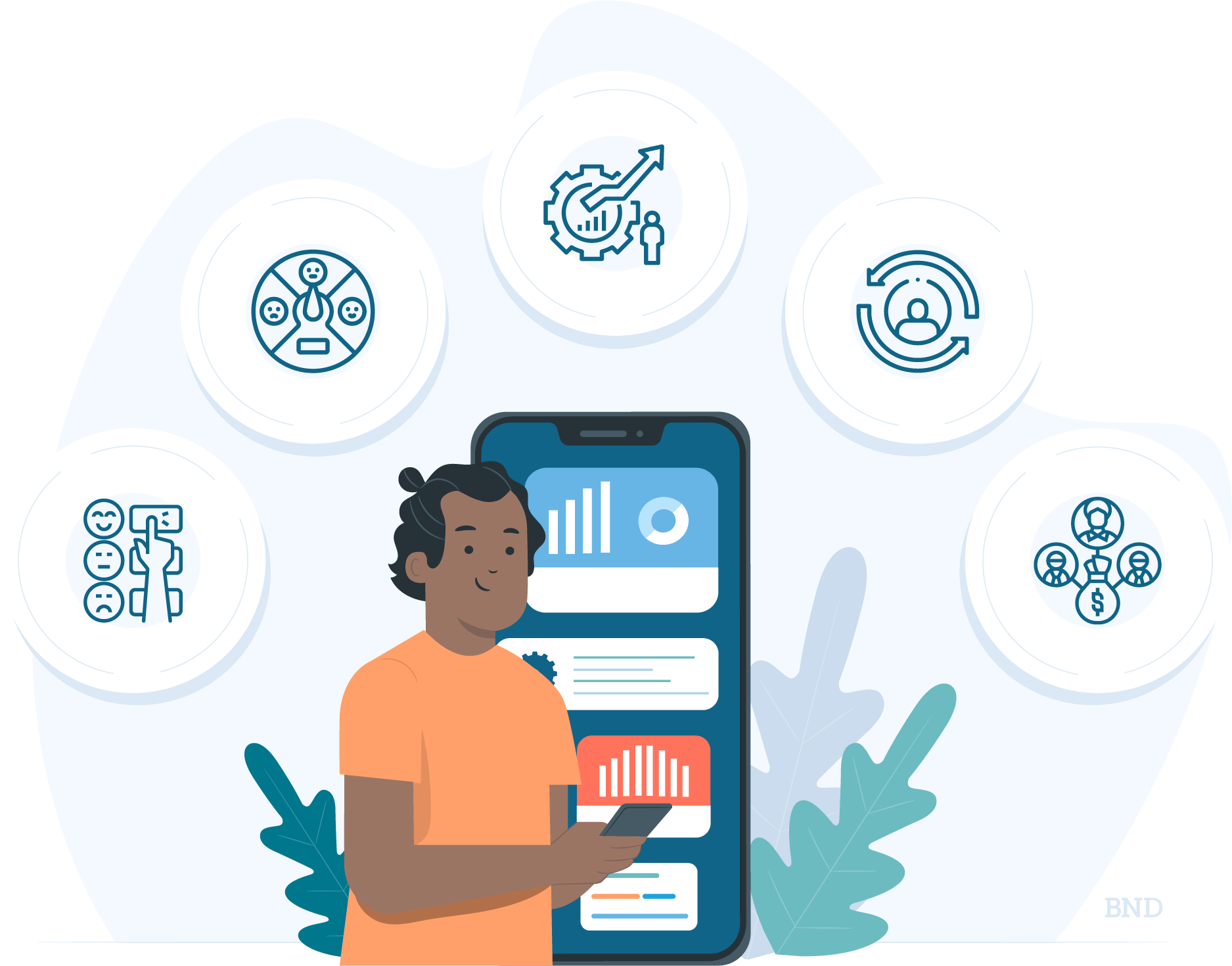MENU
Start
- Best Small Business Loans for 2024
- Businessloans.com Review
- Biz2Credit Review
- SBG Funding Review
- Rapid Finance Review
Our Recommendations
- 26 Great Business Ideas for Entrepreneurs
- Startup Costs: How Much Cash Will You Need?
- How to Get a Bank Loan for Your Small Business
- Articles of Incorporation: What New Business Owners Should Know
- How to Choose the Best Legal Structure for Your Business
Our Guides
- Business Ideas
- Business Plans
- Startup Basics
- Startup Funding
- Franchising
- Success Stories
- Entrepreneurs
Small Business Resources
Grow
- The Best Credit Card Processors of 2024
- Clover Credit Card Processing Review
- Merchant One Review
- Stax Review
Our Recommendations
- How to Conduct a Market Analysis for Your Business
- Local Marketing Strategies for Success
- Tips for Hiring a Marketing Company
- Benefits of CRM Systems
- 10 Employee Recruitment Strategies for Success
Our Guides
- Sales & Marketing
- Finances
- Your Team
- Technology
- Social Media
- Security
Small Business Resources
Lead
- Best Business Phone Systems of 2024
- The Best PEOs of 2024
- RingCentral Review
- Nextiva Review
- Ooma Review
Our Recommendations
- Guide to Developing a Training Program for New Employees
- How Does 401(k) Matching Work for Employers?
- Why You Need to Create a Fantastic Workplace Culture
- 16 Cool Job Perks That Keep Employees Happy
- 7 Project Management Styles
Our Guides
- Leadership
- Women in Business
- Managing
- Strategy
- Personal Growth
Small Business Resources
Find
- Best Accounting Software and Invoice Generators of 2024
- Best Payroll Services for 2024
- Best POS Systems for 2024
- Best CRM Software of 2024
- Best Call Centers and Answering Services for Busineses for 2024
Our Recommendations

Online only.
The CRM Metrics You Should Know

Table of Contents
Customer relationship management (CRM) software is an essential small business product. With the right kind of CRM software, you can track your overall sales process, log customer information, and monitor company goals. CRM software benefits business by giving them more information about their customers to work with.
If you isolate and track specific CRM metrics, you can ensure that your company constantly has eyes on the data that matters. Before you dive into specific metrics to keep track of, it’s a good idea to first review and consider how to keep data accurate and the overall types of CRM metrics to be aware of.
Keep in mind that as your company begins using CRM software, you should tie your findings with your overall business goals. CRM software is only effective — and CRM metrics are only illuminating — if you can frame them in the overall context of your business strategy.
What are CRM metrics?

Before diving into which CRM metrics are worth tracking, it’s important to first understand how these metrics can help your business. CRM metrics are marquee data points for you to identify and follow while keeping your business goals in mind. Depending on your business’s situation and overall goals, you may have several key metrics you’ve identified and want to highlight to motivate your team and help explain your business’s overall goals.
Properly using CRM software can result in higher sales and more engagement with customers. Identifying key metrics can allow you to draw in more customers, use your CRM to enhance sales, and create further success for your business. This software can provide context on sales as they are completed.
In today’s data-driven society, CRM metrics play a vital role in establishing a company’s benchmarks. When you define which metrics are important to your business, your company can glean important insights and understand which strategies are working and which ideas need to be changed.
CRM metrics allow small businesses to better track important data points related to overall business strategies.
Types of CRM metrics
Depending on your company, business model, industry and other factors, one or more of the metrics below may be worthwhile for you to track. Among the metrics that can be tracked include the numbers of prospects, new customers or retained customers. You can also examine close and renewal rates. Other metrics include the number of direct sales calls made, new revenue amounts and the number of open opportunities.
From a marketing perspective, you might evaluate how many campaigns you are running, the number of responses each campaign produces and how much revenue the campaigns generate. When considering your website, you might look at how long each person spends on your website and how many visitors make a purchase.
On the customer service side, CRM metrics you might track include how many cases your support team handles, how many cases they close each day and how long it takes them to resolve the situation.
Bill Band, a CRM thought leader, classifies CRM metrics into three categories. The number of CRM metrics can be daunting, but Band’s classifications can help you decipher which metrics are relevant to your business. On a macro level, Band recommended that smaller companies analyze internal operations-based metrics with customer perception metrics. By doing so, Band said, small businesses can gain insights about how internal operations are affecting customer perception, and vice versa.
As you determine which metrics are worth tracking, it can be helpful to organize them into the following categories:
- Business performance metrics
- User adoption metrics
- Customer perception metrics
Business performance metrics
These metrics comprise a wide range of data, including pipeline, sales performance and other sales-based metrics. Overall, these types of metrics measure your company’s overall performance and progress in relation to your company goals.
User adoption metrics
This metric focuses on how your organization is using its CRM software, such as how your workers are using the system, and leveraging the data that is being collected.
Customer perception metrics
These metrics speak to how customers interact with your business. They highlight data about the customer journey through your company’s sales pipeline, whether your customers are satisfied, and which customers are return customers. By combining this data with your sales funnel, you can better meet your customers’ needs.
You can leverage your CRM data for marketing campaigns. Use the information you gather from every customer interaction to refine your buyer personas and better reach your target audience.
5 essential CRM metrics to track

Here are five marquee metrics your small businesses may want to track using your CRM system.
1. Net promoter score
The net promoter score measures how satisfied customers are with your business. Throughout the buyer’s journey, you can ask them to rate their experience on a scale from one to 10. This can help further delineate how customers perceive your business. Engage Bay recommends viewing those scores on the following scale as:
- 0-6 ratings: These scores come from consumers who could be considered detractors for your product or service.
- 7-8 ratings: These ratings come from consumers that can be classified as passives, or people who enjoy your product but who don’t have a strong attachment to it.
- 9-10 ratings: These scores come from customers that can be classified as promoters of your product, or people who will recommend your product or service to others.
Regardless of how you define each rating, a feedback system linked to your CRM solution can help you better understand your customers’ experiences.
2. Customer effort score
This metric, referred to as CES, also measures customer satisfaction. It drills down into the customer experience, however, and measures overall satisfaction based on customer effort. The CES reflects how easy or difficult customers find working with your company. The CES can have multiple ranges, such as zero to 100 or zero to 10. If a customer, for instance, has to continually follow up to get answers on something product- or service-related for your business, the lower your CES score.
3. Rate of renewal
This CRM metric measures growth, which is especially relevant for subscription-based businesses, as it tracks how many customers decide to continue using your product or service once they’ve signed up. Much like customer churn below, this is an essential metric for any small business looking to understand its overall growth compared to its business goals.
4. Customer churn
Customer churn, also called customer turnover and customer attrition, informs you how many customers you’re losing during a given time period, e.g., monthly, quarterly or yearly. This is an easy and incredibly useful metric to track for your small business. By tracking this type of metric, you can understand why customers are leaving and strategize how to keep them.
5. Customer retention costs
Customer retention is essential for any small business. However, measuring it against the costs involved with running your business can provide major insights into how — and where — your company can become more efficient. Your customer retention costs should be less than the average revenue coming from permanent customers. When calculating customer retention, make sure to set the right time frame — be it monthly, quarterly or yearly — to ensure you’re measuring the proper cost per customer.
Depending on your business, among the key metrics you should examine and track are your net promoter score, customer effort score, rate of renewal, customer churn and customer retention costs.
How to ensure your metrics are accurate
Bad initial CRM lead management to bad metrics and reporting. So, before you can identify and track important metrics, it’s important to confirm that the information you’re receiving is accurate and relevant to your business goals. Attaining good data is as simple as reviewing your collection processes, ensuring sensitive data is being treated properly and staying vigilant.
The most important step you can take to maintain good data is to comb through existing customer data. Work with those in your company who have access to data collection processes. Ensure that customers are not entered twice into your system, and ensure that the information being collected about each customer is accurate. The same applies to your sales data. Talk with your reps about how they’re tracking important sales metrics. By monitoring the data collection process, you can prevent potential mistakes and limit inaccurate data collection and analysis in the future.
Another important step you can take is limiting people in your organization who have access to data and data collection processes. That way, if there are mistakes, you can work closely with a few individuals in your company to remedy them. More importantly, it makes staff training easier on the best practices for handling sensitive data. This can reduce your company’s risk of data breaches and phishing attacks from occurring.
You can integrate your CRM with other business software to seamlessly share the data you collect on customers and provide access to the other teams that need it. This can help you keep customers engaged regardless of which touchpoint in your company they connect with.
The best CRM software
If these metrics sound like useful data points for your company to take advantage of, check out our best CRM software picks. We selected these businesses after hours of research and determined which types of businesses and circumstances each is best suited for. Here’s a look at some of our favorites.
- Salesforce: Perhaps the biggest name in CRM software is Salesforce, which is suitable for businesses of all sizes. This platform has set the standard in the CRM space and is a great all around tool for tracking and managing customer interactions. Read our Salesforce review for more information.
- Pipedrive: Pipedrive is an effective CRM platform that visual learners will love. It offers tools that show how customer interactions have developed over time, so you can see at a glance how your team is doing at nurturing leads. Read our Pipedrive review to learn more.
- monday: This company can trace its roots back to project management, but its CRM platform also stands out as exceptional. You can even connect these tools so that any actionable items that come out of customer interactions are turned into a task in the project management software and assigned right away. Read our monday sales CRM review to learn more.
- Zoho: Zoho gets the job done even for businesses on a budget. This nimble and effective CRM software is a great choice to start out with and it can grow alongside your small business as you attract more customers. Read our Zoho CRM review for more information.
- Oracle NetSuite: If your company is growing quickly and you need something heavy duty, Oracle NetSuite offers a CRM software that is part of a broader enterprise resource planning (ERP) solution. Ideal for sprawling businesses in multiple states or countries, this software can handle seriously large companies. Read our Oracle NetSuite review for more information.
CRM metrics can improve your understanding of your customers
The best way for a business to grow and succeed is to understand what its customers need and then fulfill those needs. CRM software can help you gather important data that not only serves to help you drive sales, but also inform your marketing campaigns to better speak to the pain points your customers experience. As you improve your messaging and your products and services thanks to this data, you’re likely to see sales increase and return customers abound.








